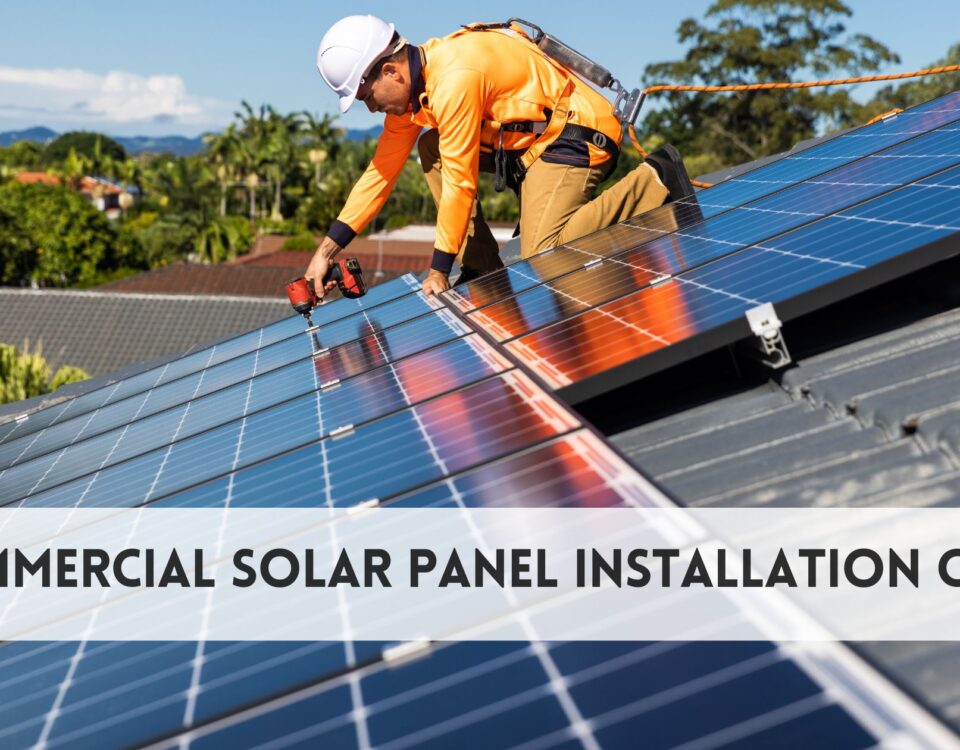
Can you install solar panels on a metal roof?
May 7, 2025
How to set up a smart home system?
May 14, 2025Solar panels are a smart, long-term investment that can significantly reduce your electricity bills and lower your carbon footprint. However, to maintain optimal performance, regular cleaning is essential. A common question among solar panel owners is, How often should I clean solar panels? Over time, dust, dirt, debris, and environmental factors can accumulate on the surface of your panels, reducing their ability to capture sunlight efficiently. This can lead to a noticeable decrease in energy production, which directly affects your savings.
While the frequency of cleaning depends on your location and environmental conditions, most experts recommend cleaning your solar panels at least once or twice a year. In areas with high dust or pollution, more frequent cleaning may be necessary. Regular maintenance ensures that your solar panels remain at peak efficiency, prolonging their lifespan and maximizing your return on investment. By keeping your solar panels clean, you can enjoy consistent energy savings and help ensure a more sustainable future.
How often should I clean solar panels?
The frequency of cleaning your solar panels largely depends on factors like your location, the climate, and the amount of dirt or debris your panels collect. As a general guideline, most solar panel systems should be cleaned at least once or twice a year to maintain optimal performance. However, certain conditions may necessitate more frequent cleaning.
If you live in an area with heavy dust, pollution, or industrial activity, your solar panels are likely to accumulate dirt faster, meaning they will need cleaning every 3-6 months. Similarly, if your panels are installed in a region with minimal rainfall, dust and dirt may remain on the surface longer, reducing their efficiency.
On the other hand, if you reside in an area with frequent rainfall or natural cleaning, such as coastal regions or places with consistent rain, cleaning your solar panels once a year may suffice. Additionally, if your panels are installed at a steep angle, debris may naturally slide off, requiring less frequent cleaning.
Monitoring your solar panels’ performance is also a good way to determine when cleaning is needed. A noticeable drop in energy production can indicate that your panels need attention. Regular cleaning helps ensure your solar panels perform efficiently, providing the maximum energy output.
Factors to Consider:
- Location: If you live in an area with heavy rainfall, your panels may stay cleaner longer, reducing the need for frequent cleaning. Conversely, dusty or arid areas, such as deserts, will require more frequent cleaning due to the accumulation of dust and debris.
- Panel Orientation: Panels installed at a steeper angle may shed dust and dirt more easily, reducing the frequency of cleaning.
- Weather Conditions: Harsh conditions like high winds or heavy storms can leave debris and dirt on your panels, requiring more frequent cleaning.
Why Do Solar Panels Need Cleaning?
Solar panels convert sunlight into electricity, but their efficiency can be significantly reduced if dirt, dust, and debris accumulate on their surface. Regular cleaning is essential to maintain their performance and maximize the return on your investment. Here’s why cleaning your solar panels is so important:
Efficiency Boost:
- Increased Sunlight Absorption: Dirt, grime, and debris on solar panels block sunlight from reaching the photovoltaic cells. This obstruction reduces the amount of solar energy the panels can capture.
- Performance Drop: A buildup of dirt can reduce your panels’ energy output by up to 25%, meaning you’re not getting the maximum benefit from your system.
- Optimal Energy Production: By regularly cleaning your solar panels, you ensure they capture the most sunlight possible, improving their overall efficiency and energy production.
- Cost Savings: Cleaner panels mean more energy produced, which translates to greater energy savings and lower electricity bills.
Longer Lifespan:
- Prevents Wear and Tear: Dirt and debris can cause scratches, surface damage, and other forms of wear over time. Regular cleaning reduces these risks.
- Protection from Corrosion: Accumulated dirt can trap moisture, leading to the potential for rust or corrosion, particularly in coastal areas.
- Preserving Panel Integrity: Regular cleaning helps prevent buildup that could compromise the integrity of your panels and lead to expensive repairs or replacements.
- Increased Durability: By keeping your panels clean, you help ensure they last longer, providing consistent energy production for many years.
Maximized Return on Investment:
- Higher Efficiency, More Savings: Solar panels are a significant financial investment, and cleaning them regularly ensures they operate at peak performance. This results in better energy production and higher savings.
- Protection of Investment Value: Keeping your panels clean helps maintain their resale value if you decide to sell your property or upgrade your system.
- Reduced Maintenance Costs: Regular cleaning minimizes the need for costly repairs or replacements caused by neglect.
- Increased System Efficiency Over Time: A well-maintained solar system consistently delivers energy savings, allowing you to get the best return on your investment.
How to Clean and Maintain Solar Panels?
Cleaning solar panels can be a simple task when done correctly, but it’s essential to follow the right procedures to avoid damaging the panels. Here’s a step-by-step guide on how to clean and maintain your solar panels:
Turn Off the Solar System:
Before cleaning your solar panels, always ensure the solar power system is turned off. This is a critical safety step to avoid any electrical hazards while cleaning the panels. Switching off the system helps prevent accidental electric shocks, as well as damage to the electrical components. Most solar panels have an on/off switch that can be used to safely power down the system before starting the cleaning process. Always double-check that the system is off and disconnected before handling the panels. Taking this precaution ensures a safe and efficient cleaning session without risking any electrical issues.
Use a Soft Brush:
To clean your solar panels effectively, start with a soft brush or broom. Use a long-handled brush with soft bristles to gently remove loose dirt, dust, and debris. Avoid using abrasive brushes or materials, as they can scratch the surface of the panels and damage the delicate glass or photovoltaic cells. Scratches can compromise the panel’s ability to capture sunlight and reduce overall efficiency. A soft brush is ideal for preventing any damage while still effectively clearing off dirt. Regularly removing debris ensures that your panels stay efficient and can generate maximum energy output.
Clean with Water:
For a more thorough cleaning of your solar panels, use a hose with a gentle spray to rinse off dirt and stains. High-pressure water should be avoided, as it can cause damage to the panels, such as cracks or loose connections. If you encounter stubborn stains or bird droppings, use a mild detergent mixed with water to clean the surface. Always ensure the cleaning solution is gentle and free from harsh chemicals that could damage the panels. Cleaning with water helps remove accumulated dirt without scratching or damaging the sensitive components of your solar system.
Dry the Panels:
After washing your solar panels, it’s important to dry them properly to avoid water spots. Use a soft microfiber cloth or towel to gently wipe the surface of the panels. Drying your panels helps ensure that water does not evaporate and leave streaks or mineral deposits behind, which can reduce their efficiency. Proper drying also prevents water spots from forming on the glass, which can negatively affect the panel’s ability to absorb sunlight. Drying the panels also helps keep them clean for a longer period, reducing the need for frequent maintenance.
Inspect Regularly:
In addition to cleaning your solar panels, it’s essential to inspect them periodically for any signs of damage or wear. Regular inspections help you identify issues such as cracks, loose connections, or damaged seals that could affect the performance of your solar system. Pay attention to any visible changes in the panels, such as discoloration, cracks, or dirt buildup that cleaning didn’t address. If you notice any issues that cannot be solved with cleaning, consider contacting a professional solar technician for repairs. Routine inspections ensure your panels continue to operate at maximum efficiency and last longer.
Best Tools and Techniques for Cleaning Solar Panels
Cleaning solar panels doesn’t have to be complicated, but using the right tools and techniques can make the process easier and safer. Here’s a list of the best tools and techniques for cleaning your solar panels:
| Tool/Technique | Purpose | Recommendation |
| Soft Brush or Broom | Remove loose dirt and debris | Use a soft-bristle brush to avoid scratching the surface. |
| Hose with Low Pressure | Rinse panels without damaging them | Use a low-pressure setting to wash off dirt. |
| Mild Detergent (if needed) | Clean stubborn stains or grime | Use a gentle soap solution if necessary. |
| Microfiber Cloth or Squeegee | Dry panels and prevent water spots | Use a microfiber cloth to dry the panels gently. |
| Rope or Extension Pole | Reach higher panels safely | Use a rope or pole system to clean high or hard-to-reach panels. |
When cleaning your solar panels, always do so during early morning or late afternoon when the sun is not at its peak intensity. This reduces the chances of rapid drying, which can leave streaks or water spots.
What Happens if You Don’t Clean Your Solar Panels Regularly?
Neglecting regular cleaning of your solar panels can lead to several issues that can impact their efficiency, lifespan, and overall performance. Below are the consequences of not maintaining clean solar panels:
Decreased Efficiency
- Dirt and Debris Block Sunlight: Dust, leaves, and bird droppings can cover your panels, blocking sunlight from reaching the photovoltaic cells, which directly reduces their ability to generate energy.
- Lower Energy Output: As the dirt accumulates, the amount of energy produced by your solar system decreases, meaning less power for your home or business.
- Increased Electricity Bills: With reduced energy production, you may find yourself relying more on the grid, leading to higher electricity costs.
- Visible Performance Drops: Over time, this decrease in efficiency becomes noticeable, as your solar panel system may not meet the expected energy output.
Long-Term Damage
- Accumulation of Stubborn Dirt: Over time, dirt and debris can harden, making it more difficult to remove and potentially damaging the panel’s surface.
- Risk of Scratching: If dirt isn’t removed properly, scrubbing can lead to scratches on the glass surface, which might impair solar efficiency.
- Damage to Photovoltaic Cells: Debris left unchecked can cause wear and tear on the sensitive photovoltaic cells underneath the glass, reducing their ability to convert sunlight into electricity.
- Expensive Repairs: Damaged panels may require costly repairs or even replacement, which could have been avoided with regular cleaning.
Higher Maintenance Costs
- Increased Wear and Tear: Dirty panels lead to mechanical strain, as dust and debris may cause unnecessary wear on the system’s components.
- Early System Failure: Ongoing neglect can lead to premature failure of essential system parts, requiring expensive fixes or a complete system overhaul.
- Cost of Professional Cleaning: The longer you wait to clean the panels, the more difficult it becomes to restore their efficiency, often requiring professional cleaning services.
- Unexpected Costs: What could have been a simple, low-cost maintenance task becomes a more expensive issue due to prolonged neglect.
Reduced Lifespan
- Faster Degradation of Panels: Dirty panels can cause them to degrade more quickly, shortening their lifespan and reducing the overall return on investment.
- Corrosion Risk: Accumulated dirt and debris, especially in coastal areas with salt or in areas with industrial pollutants, can lead to corrosion, which permanently damages the panels.
- Increased Need for Replacement: Without regular cleaning, the solar system might need to be replaced earlier than expected due to accumulated damage and reduced efficiency.
- Lower Resale Value: If you decide to sell your home or business, neglected solar panels may reduce the resale value, as potential buyers may see the system as inefficient or damaged.
Final Words
So, How often should I clean solar panels? The answer is not one-size-fits-all but should be based on the specific conditions of your location and panel setup. As a general guideline, aim for cleaning at least once or twice a year, with more frequent cleaning required in areas with significant dust or debris. Regular maintenance, including cleaning, will ensure your solar panels perform efficiently and last for many years, providing you with the best return on investment.
By following the right cleaning procedures and using the best tools, you’ll keep your solar panels functioning at their best, reducing the risk of performance issues and costly repairs. Remember, a well-maintained solar system is an efficient one!


